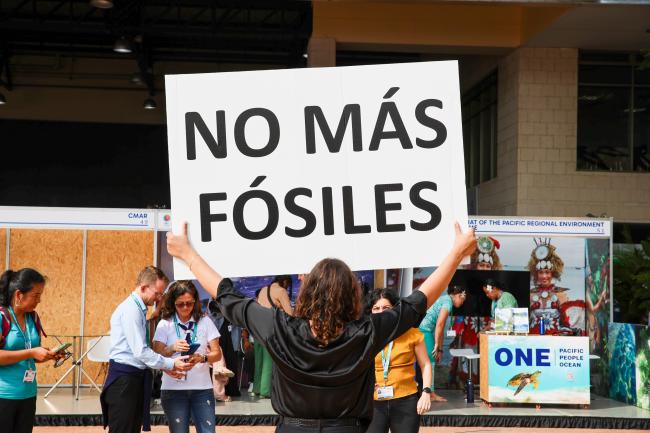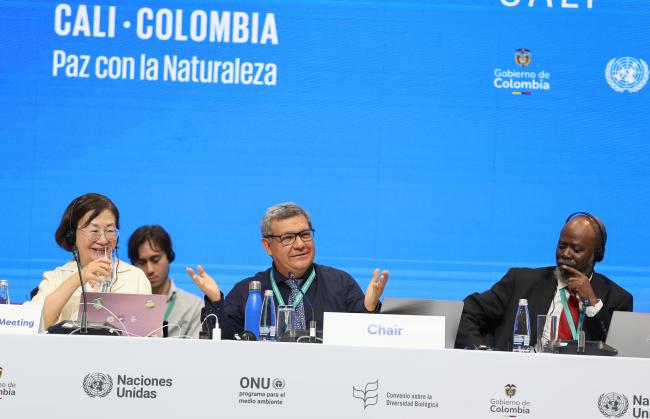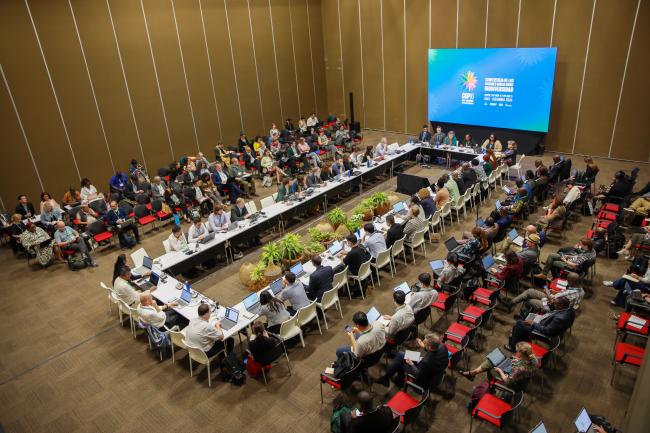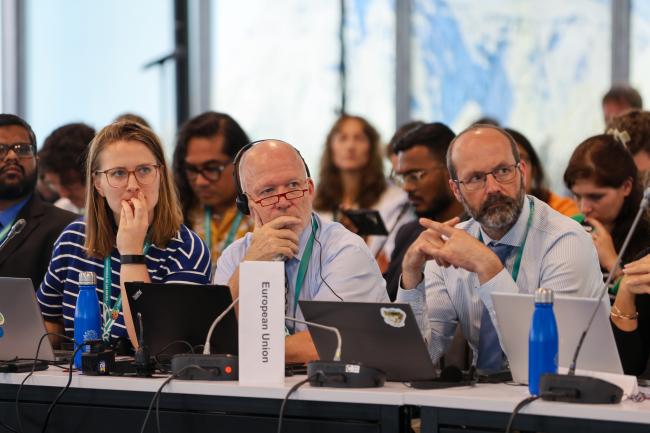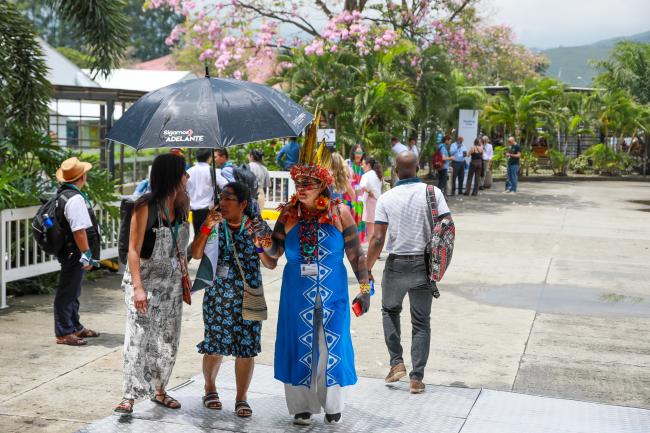Ensuring fair and equitable sharing of benefits from the use of digital sequence information (DSI) on genetic resources is key to addressing global inequities in biodiversity-based innovation. In addition, promoting the participation of Indigenous Peoples and local communities (IPLCs) in processes of the Convention on Biological Diversity (CBD) is crucial for the integration of their knowledge and customary practices in biodiversity governance. These two issues featured high in the day’s proceedings, with contact groups focusing on DSI and on Article 8(j) (traditional knowledge and IPLCs), among other issues.
Want to dig deeper into today's talks? Read the full Earth Negotiations Bulletin daily report.
Text-based negotiations continued in multiple settings. Working Group II concluded the first reading of all its 26 agenda items for the CBD, its Cartagena Protocol on Biosafety, and the Nagoya Protocol on access and benefit-sharing (ABS). Delegates then began consideration of draft decisions in conference room papers, including on plant conservation, the report of the Compliance Committee under the Nagoya Protocol, and the ABS Clearing-House.
Multiple contact groups continued their work. One group began textual negotiations on the revised resource mobilization strategy. Another met over the course of the day to deliberate on tasks in the new programme of work on Article 8(j). The contact group on DSI focused on provisions dealing with disbursements from the DSI fund with two potential approaches: project-based allocations though a country-driven or community-driven process, or direct allocations. The group on biodiversity and health finalized its work, with certain actions to ensure biodiversity and health co-benefits in the global action plan on biodiversity and health remaining in brackets, for consideration by Working Group II. On biodiversity and climate change, delegates addressed a draft decision on interlinkages between the two processes and future work.
As contact groups on risk assessment and risk management of living modified organisms; marine, coastal, and island biodiversity; and capacity building carried on into the night, participants pondered once again on the need for focus and urgency, in view of the magnitude of the tasks ahead.
To receive free coverage of global environmental events delivered to your inbox, subscribe to the ENB Update newsletter.
All ENB photos are free to use with attribution. For the 2024 UN Biodiversity Conference, please use: Photo by IISD/ENB | Mike Muzurakis
Contact Groups

From L-R: Sivendra Michael, Fiji; María Claudia Vélez Crismatt, Colombia; and Camila Zepeda Lizama, Mexico

From L-R: Q”apaj Conde Choque, CBD Secretariat; and Contact Group on Article 8(j) Co-Chairs Lucy Mulenkei, Indigenous Information Network, and Pernilla Malmer, Sweden

